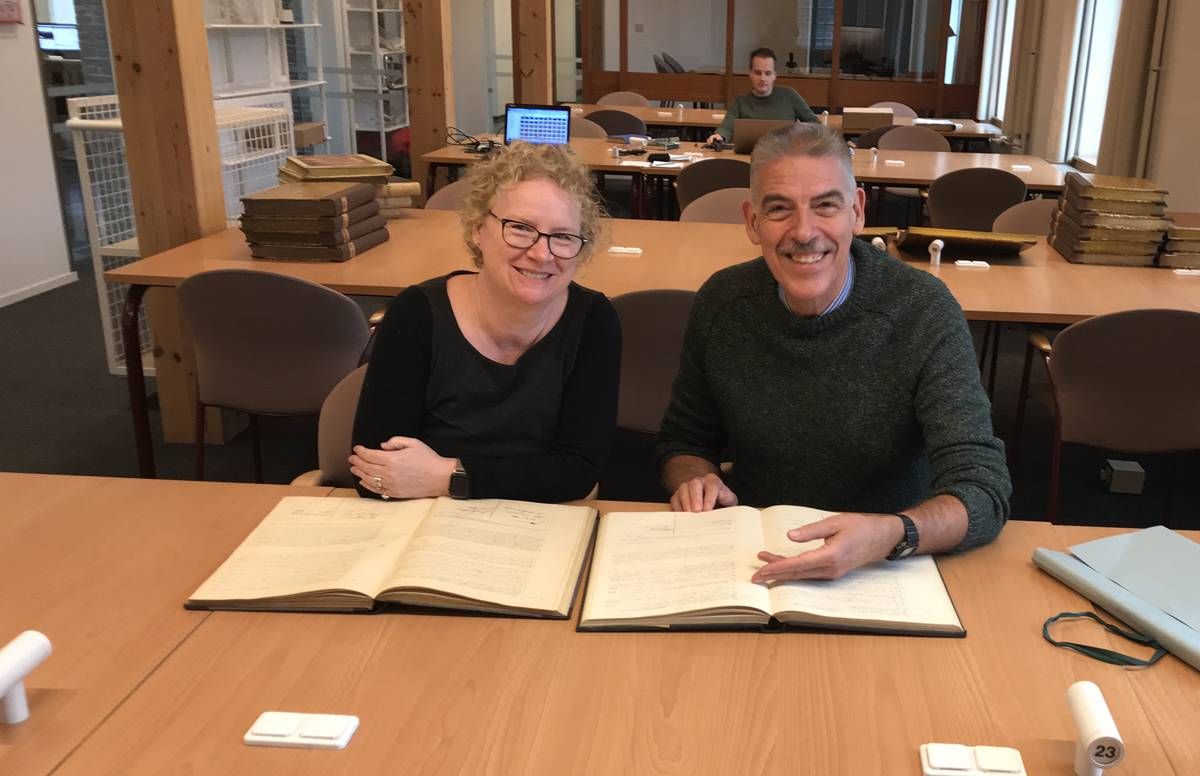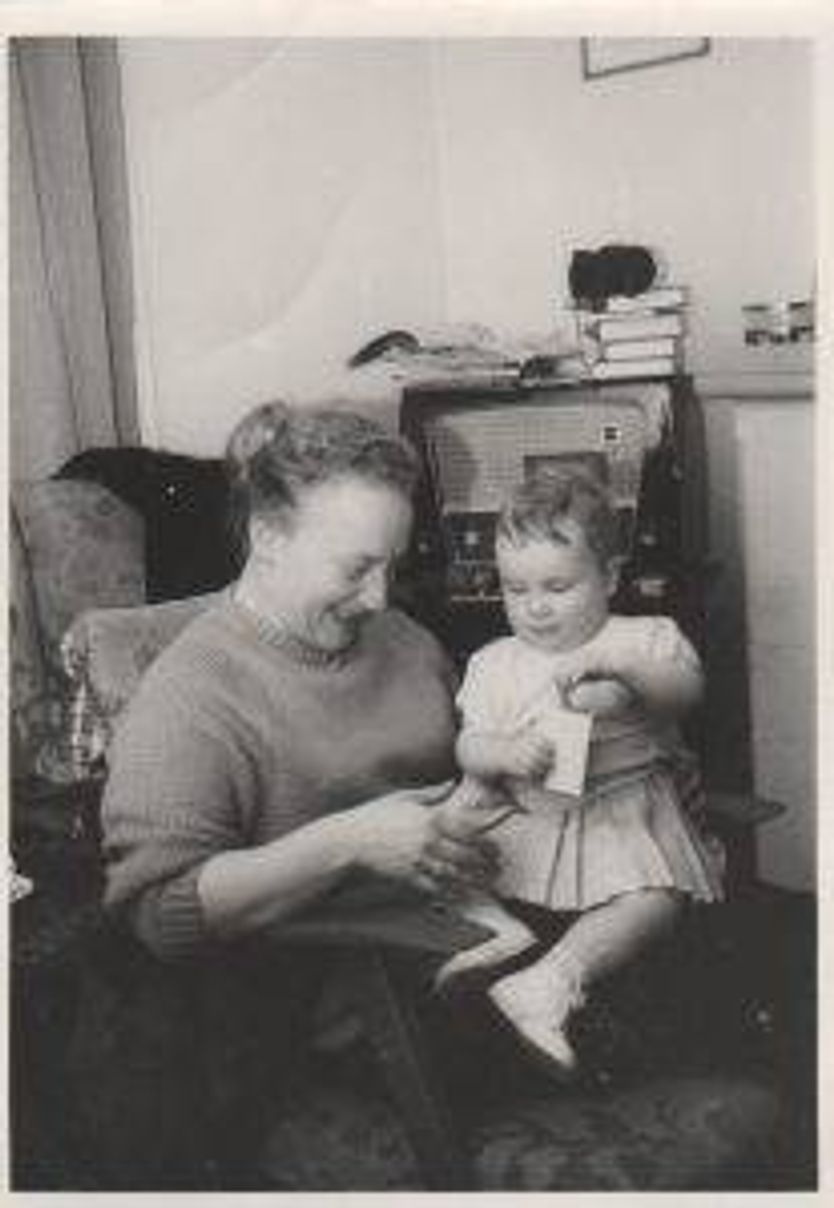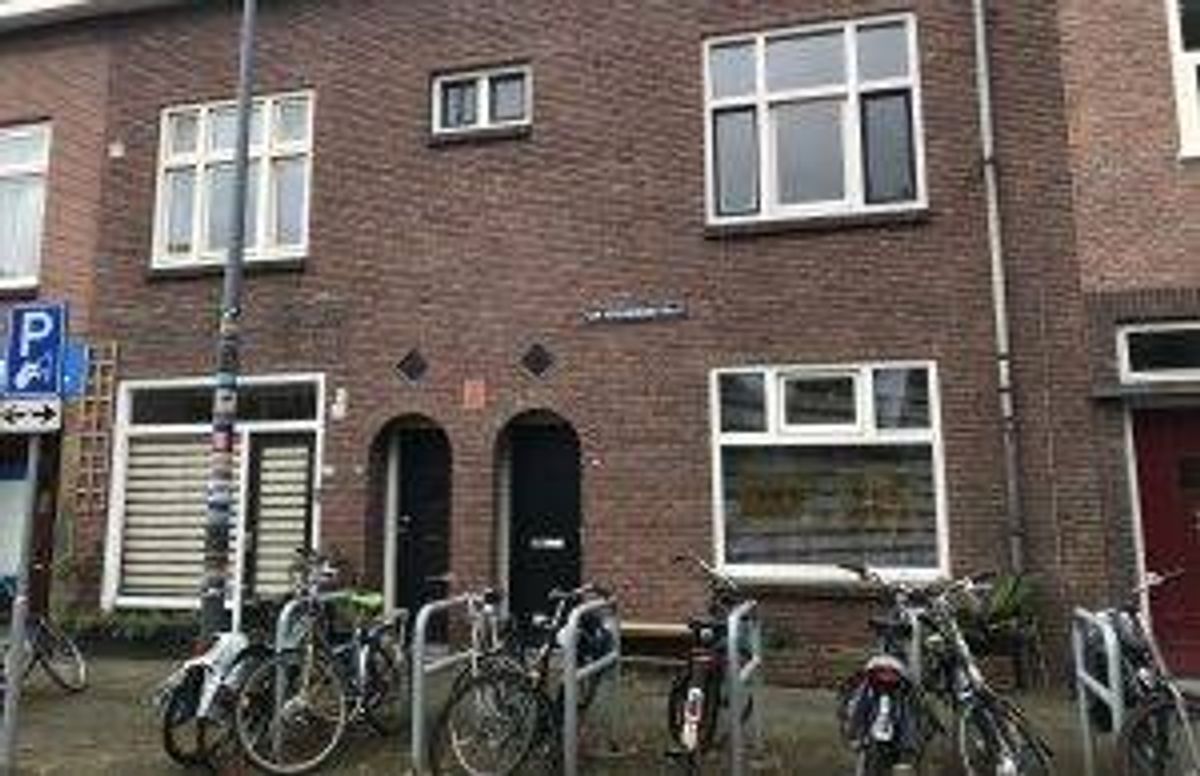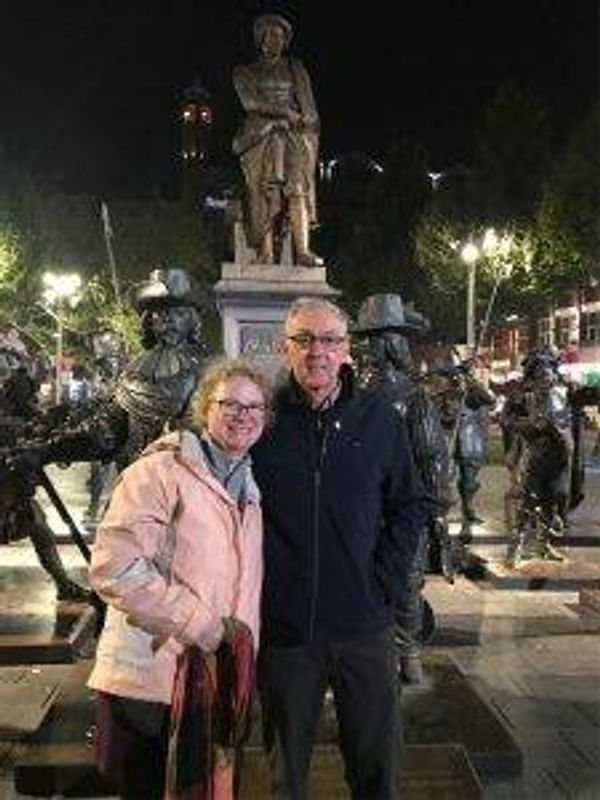Exploring My Family Tree Let Me Find Answers
On a trip to Holland, I discovered clues to my family background
It was a typical gray and cool October day when we arrived in 's-Hertogenbosch, the Netherlands. The last time I was there, I was a toddler, visiting my Oma and Opa (grandmother and grandfather) with my parents. I’m 58 now. When my husband Peter said earlier in the year that he wanted to visit Holland, I thought it was a good opportunity to show him where my family is from. At the same time, perhaps I could find answers to questions I had about my parents and why they chose to leave their home so many years ago.

There’s been a lot of discussion over the years regarding how children turn out as adults — nurture versus nature, that sort of thing. The topic interests me because of my volatile childhood. Nothing we children did or said was ever good enough; my parents were always angry, critical. They rarely had good things to say about anyone. Perhaps if I knew more about their story, I’d understand. The past wouldn’t excuse them, but it might explain them.
In preparation for our trip, I reached out to Bart Aerssens, a professional genealogist in Den Bosch (as 's-Hertogenbosch is known by the locals). Aerssens, owner of Brasia Genealogy, specializes in helping Americans and Canadians of Dutch and Belgian origin learn about their ancestors. He offered to do some research into my history. Growing up in Canada, I had no contact with my extended family. I knew the basics — things like how many siblings my parents had and what their parents did for a living. But that was about it.
The Importance of Connecting to Personal History
I’m not alone in being curious about the past. Searching for your roots is becoming a popular pastime and Aerssens has learned about the importance people feel in connecting with their history.
“In comparison with twenty-five years ago, society has changed dramatically,” he explained. While once people belonged to traditional groups of neighboring family members, clubs, places of worship, work and social clubs, this is becoming less common and people are becoming more isolated.
I've long been fascinated with historical things, but this was different. This was personal.
“For these people, genealogy can be a safe haven,” Aerssens said. “A family tree is clear proof of one’s existence since it tells people, ‘This is you. These are your ancestors. This is a group you belong to.'”
Andrea Mechanick Braverman, a clinical professor at the Sidney Kimmel Medical College of Thomas Jefferson University in Philadelphia agreed. “If I join a club, I see people who are similar to myself and that adds to my understanding of self. I think [Aerssens] is right, there is a sense of belonging that way too,” said Braverman.
But there are different reasons why someone might want to learn about their background.

Braverman explained to me that some just want to see where their families originated, while others want to learn more so they can better understand themselves. “I think most people are [using] the commercial kits and they're not doing a deep dive like you did,” she said.
Using commercial tools, you can find names of people who are part of your past. But these can’t tell you much about your family members or their stories, explained Aerssens. And they may not always be reliable.
“The internet is a great source of genealogical data. It has to be used with caution, however,” he said. “Often you don’t know if the information is correct because you don’t know the original source.”
In his opinion, if you really want to connect with that history, you have to sort out the underlying stories for the past to make sense.
Searching the City Archives
As we traveled to Den Bosch, I wondered what Aerssens had found. We’d kept in touch, but he revealed little by email, wanting me to discover his findings in person. He met us at the train station and drove us to the city archives. Normally, you can only access these records online, but to make the experience more impactful, he obtained special permission for me to see the record books in real life.

The modern archives building is located in a citadel, built in the 1600s. It was beautiful, but a study in contrasts — the new and the old. As we were led to a glass-walled cubicle, we passed people poring over old documents. Now, it was my turn to not only look at these documents, but to touch them.
I’ve long been fascinated with historical things, but this was different. This was personal. The old books on the table held marriage certificates and other data from both sides of my family, dating back generations. The level of detail was astounding.
“Record-keeping has become a second nature for the Dutch,” Aerssens explained. “Over the last five centuries, almost everything in the Netherlands has been organized, structured, regulated, recorded, documented and archived.” And that level of record keeping meant some of my questions could be answered.
So far, Aerssens has helped over 100 people learn about their past. In my case, he was intrigued by missing names in my family bible and that my father uprooted his small family to come to Canada, leaving us few connections with the past.
“I hoped to find the reason why, because this might give you more in-depth insight in your own family history,” he explained. “I didn’t expect to find so much information, however. Furthermore, I didn’t expect to be drawn into the story myself.”
The Stories of Their Lives
In my mother's brief explanations of the past, she told us that she had been forbidden to marry my father; something about class issues, along with a whisper of someone in his family born out of wedlock. She told me never to ask my father about it. The truth ended up being much more dramatic.
According to the documents, my paternal grandfather, Hendrikus (Henk), had a rough life. After his mother died, he and his sisters were sent to an orphanage because his father, Franciscus (Francois), refused to recognize Henk as his son, despite being married to his mother.
Francois went so far as to add a notarized addendum to Henk’s birth certificate denying parentage. Seeing the writing on the certificate was an eye opener. That was an extraordinary step to take. In the orphanage, the children were subjected to severe conditions and abuse. After a year or so, however, Francois changed his mind and claimed Henk as his after all, but not his sisters.
My journey made me change my perspective about my parents in some ways.
Not much is known about my grandfather’s life after he was reunited with Francois. But from the few stories I was told, Henk was an angry man. He worked for a Dutch brewery and was a beer bottler. Because of his orphanage experience, Henk despised the church.
This was, in some ways, the exact opposite of my mother’s family. Her father was a devout Catholic. But he was an angry man, too; also, a fierce temperance man, very anti-alcohol. My mother told me her father was discharged from the cavalry/army for medical reasons, but his outspoken anti-alcohol stance would not have gone over well in the army, perhaps hastening his departure.
Two angry men with totally opposite beliefs would have left strong imprints on their children and how they saw the world. Although we’ll never know for sure, this anger and the lack of connection between the two families, is possibly why my parents left to start over where there was no such ill-feeling hanging over them.
Decisions Can Change Our Course
After we finished looking through the documents and tracing my family tree, Aerssens drove my husband and me to the house I visited as a toddler, the house where my father grew up. As I stood in the street under the threatening sky, I tried to imagine the young boy who lived there so long ago, before he became the angry man I knew.

While many of his actions aren’t forgivable, knowing more about his past did give me a better understanding of why my father may have made some of his choices — as Aerssens had predicted.
I went into this experience knowing there could be skeletons in the closet, so nothing I learned disturbed me. But this isn’t always the case. Braverman said that people need to ask themselves why they are seeking information before taking the plunge.
“Are you prepared to find information that is different from what you anticipate or you could view as negative?," she said. You may learn about family members, even siblings, who you knew nothing about and who may not want to know about you.
My own journey made me change my perspective about my parents in some ways. Learning about how certain decisions made generations ago could change the course of lives that followed made me want to learn even more about the past, how it shaped me and my place in this world and how it still can affect my own children, although they may not realize it yet.
Curious how to say my name correctly? I usually tell people it’s like muh-RYE-keh, but the Forvo.com site has the correct Dutch pronunciation.
Marijke's work has appeared in Costco Connection, CURE Magazine, Forbes.com, Oncology Live, and many other publications. She also runs a quilting website, MyCreativeQuilts.com. Read More

